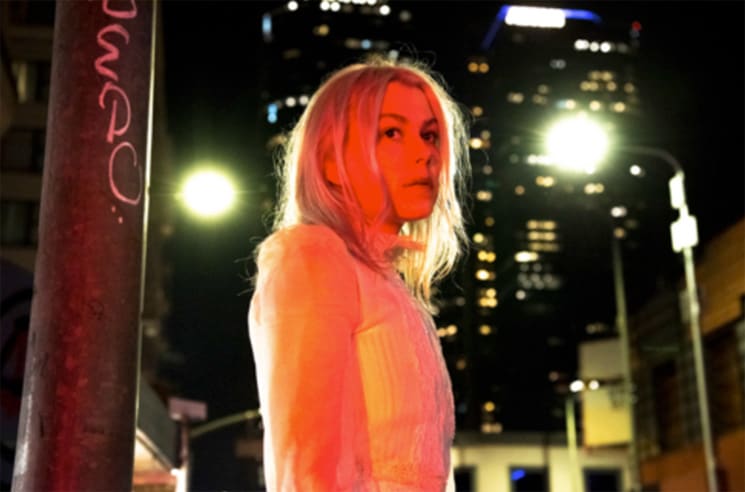Back in September of 2021, Phoebe Bridgers was sued by Chris Nelson, the owner of Sound Space studio in Los Angeles. And now, Bridgers has responded to Nelson's suit, providing a declaration in support of the motion to strike that reads:
"I believe that the statements I made in my Instagram story are true. My statements were made based on my personal knowledge, including statements I personally heard Mr. Nelson make, as well as my own observations. I continue to believe the statements that I made were true."
The statements in question were made on Bridgers' Instagram story, where the artist accused Nelson of "grooming, stealing, [and] violence," and directed people to posts made by Nelson's ex-girlfriend Emily Bannon. Bannon's Instagram account featured many more disturbing, in-depth allegations of abuse and illegal activity by Nelson.
Nelson's September suit stated that Bridgers "intentionally used her high-profile public platform on Instagram to publish false and defamatory statements regarding [Nelson] in order to destroy his reputation." He is seeking $3.8 million in damages for alleged defamation, false light, intentional infliction of emotional distress, intentional interference with prospective economic relations, and negligent interference with prospective economic relations.
On January 6 of 2022, Los Angeles County Judge Gregory W. Alarcon dismissed a different defamation suit that Nelson had filed against singer-songwriter and actor Noël Wells in December 2020. This suit claimed that an email she had sent to Big Thief that summer had caused him emotional distress and disrupted his business.
In the email, Wells cautioned the band against working with Nelson, citing her own negative professional experiences with him and describing his behaviour as "incredibly predatory." Judge Alarcon ruled that Wells' comments to the band, made "in the advancement or assistance of the creation of music," were protected by the First Amendment.
"I believe that the statements I made in my Instagram story are true. My statements were made based on my personal knowledge, including statements I personally heard Mr. Nelson make, as well as my own observations. I continue to believe the statements that I made were true."
The statements in question were made on Bridgers' Instagram story, where the artist accused Nelson of "grooming, stealing, [and] violence," and directed people to posts made by Nelson's ex-girlfriend Emily Bannon. Bannon's Instagram account featured many more disturbing, in-depth allegations of abuse and illegal activity by Nelson.
Nelson's September suit stated that Bridgers "intentionally used her high-profile public platform on Instagram to publish false and defamatory statements regarding [Nelson] in order to destroy his reputation." He is seeking $3.8 million in damages for alleged defamation, false light, intentional infliction of emotional distress, intentional interference with prospective economic relations, and negligent interference with prospective economic relations.
On January 6 of 2022, Los Angeles County Judge Gregory W. Alarcon dismissed a different defamation suit that Nelson had filed against singer-songwriter and actor Noël Wells in December 2020. This suit claimed that an email she had sent to Big Thief that summer had caused him emotional distress and disrupted his business.
In the email, Wells cautioned the band against working with Nelson, citing her own negative professional experiences with him and describing his behaviour as "incredibly predatory." Judge Alarcon ruled that Wells' comments to the band, made "in the advancement or assistance of the creation of music," were protected by the First Amendment.
